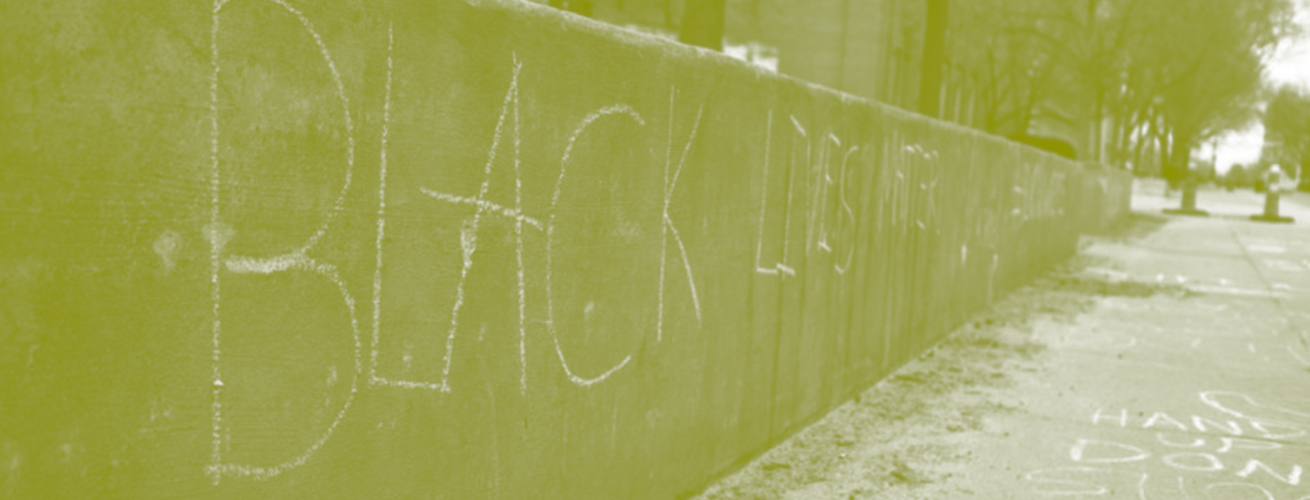As a father of a 16-month-old, I’m tired. But after enough “you don’t know what tired looks like” clapbacks and side-eye from my wife, I no longer say such silly things in front of her. The many times I am up at night with my daughter pales in comparison to the amount of sleep she has been deprived of during 10 months of pregnancy and the first 16 months of our daughter’s life. Now let’s add to her sleep deprivation: the pain during and after childbirth, the discomforts of breastfeeding, the lingering back pains, the impact of inadequate parental leave, the emotional toll of “mommy-shaming” from others, the weight of lead parenting while leading a college prep organization, and the mental labor that can easily go unnoticed.
Last week, as Alton Sterling and Philando Castile were tragically added to the list of people of color unjustly killed by the police, some of my white friends got tired. Social media platforms no longer provided a jocular and frivolous escape. You could not avoid seeing raw footage of Alton and Philando being murdered. You could not avoid the aftermath and the anger. Social media was filled with people of color sharing their fears, exposing their tears, and expressing their anger. White silence was being questioned. As weak, old arguments were trotted out to justify another police killing and undermine black pain, they were met with forceful responses. It was intense and exhausting. So some of my white friends expressed a desire for an end to all of the politics and the need to unplug from it all.
They wondered how we got to this place of anger, division, and violence. They wanted America to be better. They wanted an end to all of the death, the discord, and the debates about race and injustice on social media, etc. They wanted the Facebook they know and love back. Perhaps they longed for the times when police were trusted, when extrajudicial police killings were not viral (or at least not caught on camera), and when #blacklivesmatter was unnecessary because everyone knew #alllivesmatter. They were tired and upset.
But do they know what tired really looks like? Some of us can (and should) unplug from social media but don’t have the luxury of retreating from the black experience in America. We too want a better America. But we realize it will never come with our heads buried in the sand. Nobody is more tired of these conversations than us. Yet, we stay vigilant daily because there are real dangers associated with being black in America that have little to do with how respectful or respectable we are. And in the many moments when we’re not facing physical danger, we are on guard for an onslaught of micro-aggressions that feel like death by a thousand cuts.
As an educator, it is hard not to see how adults’ lack of facility (and stamina) with issues of race and racism is related to failures of the American public education system. How can a system that lacks diversity in its educator workforce, that is growing even more segregated, and that fails to acknowledge the impact of racism on American society, lead to an enlightened populace?
There are clear policy solutions to issues of police violence. But the education system is hardly doing its part to counteract such racism and promote racial progress. So we expect police to authentically confront their implicit racial biases after never grappling with such issues in K-12 education. We expect an end to “broken windows policing” in a society that never teaches about the racist and systemic roots of concentrated poverty. We expect our society to question the morality of the mass incarceration of black and Latino males when few are taught how slavery persisted in America until as late as 1950. We expect our society not to criminalize and pathologize blacks when the K-12 curriculum omits the legacy of black excellence and the countless contributions of people of African descent. We want some to reflect on how white privilege shapes interactions with police in a society that never learned about the economic disadvantages exacerbated by “affirmative action for whites.”
We should certainly “walk and chew gum:” advocating for policing reforms while also working to improve the American education system. But we should be wary of sanctimonious speck seeking in other sectors when the beam is rather large in the education system’s eye.
Perhaps the resilience of students of color obscures the gravity of racism in the education system and its traumatic impact on them. As early as preschool, blacks are suspended at rates 3.6 times more often than whites. By second grade, students of color have been found to be aware of race-based stigma and have related academic anxiety. Across the nation, black girls were suspended six times more than white girls. Studies have also found that teachers are more likely to label black students as troublemakers and black boys as “bad boys.” On average, white teachers have lower expectations for black students and are less likely to recommend black students for gifted programs than black teachers. Students of color are also less likely to see their culture represented in the curriculum and all students are taught a sanitized version of America’s racial history.
These are just a small sample of the types of racial injustices at the core of America’s education system. We should also be deeply troubled by the system’s inability to prepare a citizenry conversant with issues of race and equipped for racial understanding. We can continue to attempt to provide “drive-by” remedial education on issues of race via tweets, memes, or Facebook posts. But these attempts to promote understanding have to overcome echo chambers, filter bubbles, and beliefs rooted in segregated experiences and educational exposure.
Instead, we need an urgency about racial justice that is scarce among those working in the education system. This level of urgency would prompt the types of actions that recognize diversifying the teacher and leader workforce is a “not a nicety but a necessity”. It would move beyond mere “cultural competency” training in teacher preparation and teacher professional development. Rather, we should focus on building racial proficiency and expertise in non-Eurocentric readings of various subjects.
Real urgency would require that we address the curriculum, pedagogical, and policy gaps that lead to a whitewashing of history in American schools. It would prompt those calling for additional school resources to address the needs of students in poverty to also advocate for supports that address racial stress, bias, and disparities. It would challenge the many educators and education leaders silent about the injustices that disproportionately affect people of color to raise their voice in defense of equity and humanity.
There are no shortcuts to unity and to an America that lives up to its ideals. It will be uncomfortable and will be a hard slog. It requires a level of learning, reflection, and perspective that most were deprived of during their educational journeys. So it will be an exhausting enterprise.
But we can’t get tired yet. We clearly have a lot of work to do.

